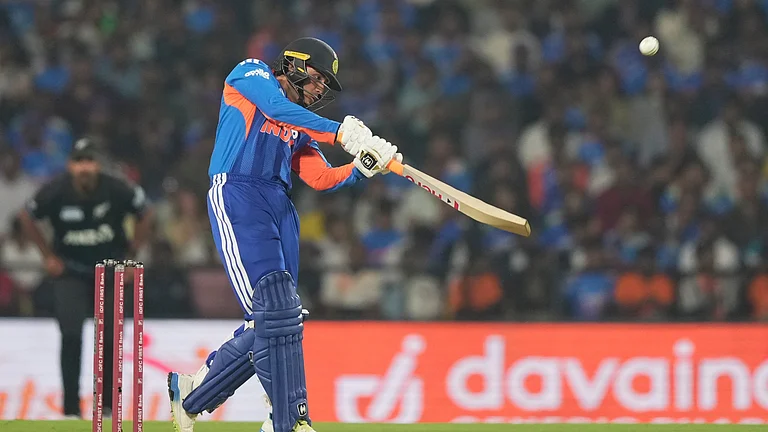Television visuals of young activist Disha A Ravi being led away by the police had created waves across the country in February last year. People reacted to the slapping of sedition charges in a case which came to be famously known as the 'Toolkit Case'. She was linked to the Swedish climate activist Greta Thunberg and accused of trying to promote pro-Khalistani forces.
In 1962, in the Kedar Nath Singh versus State of Bihar case, the Supreme Court had clarified that only those acts which involved incitement to violence or violence constituted a seditious act under Section 124 A of the Indian Penal Code. However, state governments across the country have invoked the sedition law against cartoonists, journalists, writers, activists, stand-up comedians etc.
Here are some of the controversial sedition cases that have created waves in India:
State versus Disha A Ravi (2021)
This case, known as the Toolkit Case, saw the arrest of climate activist Disha A Ravi and the issuance of non-bailable warrants against two others. The prosecution had stated that the accused allegedly started a WhatsApp group called the International Farmers’ Strike and invited a select set of people to join this group. According to the prosecution, Ravi had sought to keep her identity hidden so that no legal action could be taken against her. But the Delhi High Court stated that in a democratic nation, citizens are the conscious guards of the government. They cannot be imprisoned just because they disagree with the government’s policies.
State of Meghalaya versus Patricia Mukhim (2021)
In 2020, about 25 unidentified boys assaulted children playing basketball in Block 4 of Lawsohtun in Shillong. They were beaten up with iron rods and sticks and needed hospitalization. This prompted Patricia Mukhim, the editor of Shillong Times, to demand action against the assailants through a Facebook post. The Headman and Secretary of Dorbar Shnong Lawsohtun, Shillong, filed a complaint against Mukhim stating that her FB post incited communal hostility and might lead to a communal clash. In return, Mukhim filed a petition in the Meghalaya High Court seeking to quash the FIR filed against her. The High Court dismissed her petition.
A division bench comprising Justices L Nageshwara Rao and S Ravindra Bhat quashed the criminal case filed against Mukhim. Their order stated that free speech against citizens cannot be stifled by involving them in criminal cases unless such speech has the potential to affect public order. The Apex Court also stated that the claim made by the Dorbar Shnong Lawsohtun was “nothing more than fabrication of mind”.
Aseem Trivedi Sedition Case
In November 2011, award-winning cartoonist Aseem Trivedi was booked for sedition after seven of his cartoons, displayed at the Bandra-Kurla complex in Mumbai got into a controversy. People had gathered here to support the anti-corruption fight launched by social activist Anna Hazare. Trivedi had also uploaded the cartoons to the website of the cartoons Against Corruption campaign. There were numerous complaints against these cartoons. He was arrested and sent to jail on the allegations that his cartoons had defamed Parliament, the Constitution and the emblem. The prosecution maintained that through the cartoons Trivedi had tried to spread hatred and disrespect against the government.
In 2015, a division bench of chief justice Mohit S Shah and Justice N M Jamdar of the Bombay High Court in their order stated that Trivedi’s cartoons were full of anger and disgust against corruption but had no element of wit or sarcasm. The order said, ‘Aseem’s freedom of speech and expression under Article 19(1)(a) cannot be encroached upon when there is no allegations of incitement to violence or intention to create public disorder'.
In 2015, the Bombay High Court ordered the dropping of the sedition charge against Trivedi.
Arundhati Roy Sedition Charge (2010)
Booker Prize winner writer and activist Arundhati Roy was booked under the sedition law, along with Hurriyat leader Late Syed Ali Shah Geelani and others, in 2010 for their alleged "anti-India" speech at a seminar. Roy and others were charged under sections 124A, 153A (promoting enmity between classes), 153B (imputations, assertions prejudicial to national integration), 504 (insult intended to provoke breach of peace) and 505 (false statement, rumour circulated with the intent to cause mutiny or offence against public peace.
Sharjeel Imam Arrest (2019)
Student leader from JNU and IIT passout Sharjeel Imam is facing charges under the sedition law for making alleged inflammatory speeches during the protests against the Citizenship Amendment Act (CAA) and the National Register of Citizens (NRC) in 2019.
A court has framed charges against Imam, who is in judicial custody since 2020, under sections 124A, 153A (promoting enmity between different groups on grounds of religion), 153B (imputations, assertions prejudicial to national integration), 505 (statements conducing to public mischief) of the IPC, and section 13 (punishment for unlawful activities) of the Unlawful Activities (Prevention) Activities (UAPA).
As per the prosecution, Imam had allegedly made speeches at Jamia Millia Islamia on December 13, 2019, and at Aligarh Muslim University on December 16, 2019, where he threatened to cut off Assam and the rest of the northeast from India. In his defence, Imam had earlier told the court that he is not a terrorist and his prosecution is a whip of a monarch rather than a government established by law.
(With inputs from PTI)


























